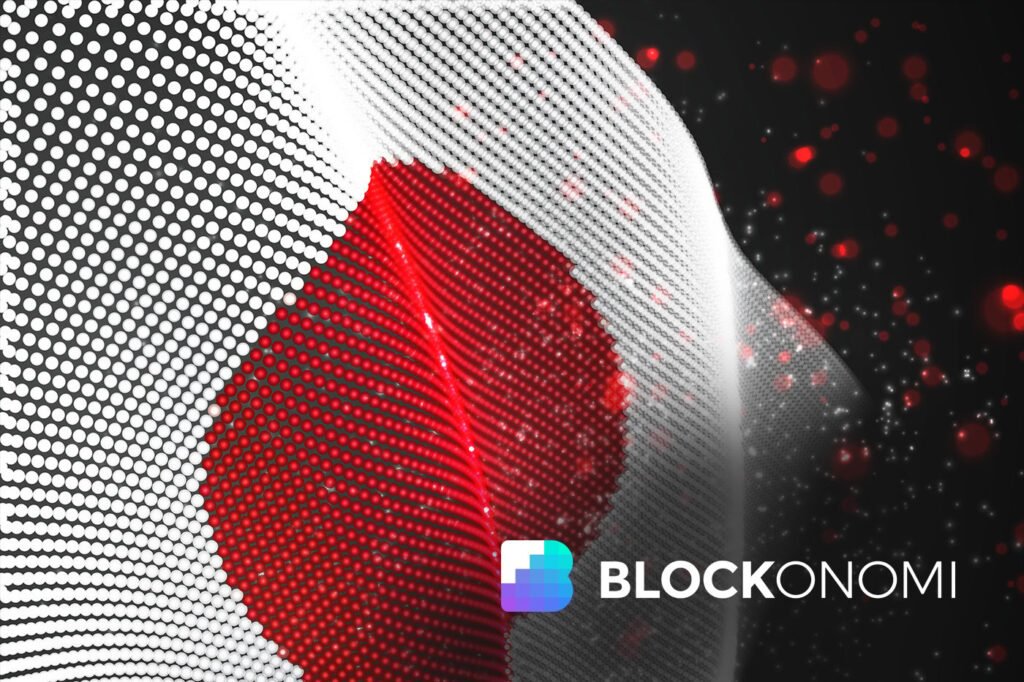TLDR
- Japan’s Financial Services Agency (FSA) will approve JPYC as the country’s first yen-pegged stablecoin this fall
- JPYC will be backed by bank deposits and Japanese government bonds
- The global stablecoin market has expanded to over $286 billion, currently dominated by USD-pegged tokens
- Yen stablecoins could boost demand for Japanese government bonds
- Circle’s USDC was approved in Japan earlier this year, marking the first foreign-issued stablecoin approval
Japan is set to enter the stablecoin market with its first domestic fiat-pegged digital currency as early as this fall. The Financial Services Agency (FSA) is preparing to approve the issuance of Japanese yen-denominated stablecoins, with Tokyo-based fintech firm JPYC leading the rollout after registering as a money transfer business.
This marks a major step for Japan’s digital finance landscape, which has so far only permitted foreign-issued stablecoins. The JPYC token will maintain a fixed value of 1 JPYC = 1 yen, backed by highly liquid assets including bank deposits and Japanese government bonds.
Users will be able to purchase the tokens through bank transfers, which will then be issued to digital wallets. This system creates a stable, transparent framework for both individual and corporate users looking to utilize digital yen.
The global stablecoin market has seen tremendous growth in recent years. It is now valued at more than $286 billion and remains dominated by dollar-pegged assets like Tether’s USDT and Circle’s USDC.
While US dollar stablecoins already have legal status in Japan, a yen-denominated option has been missing from the market until now. The introduction of JPYC will fill this gap and diversify the currency base within the digital asset ecosystem.
Impact on Japan’s Bond Market
According to Okabe, a representative of the JPYC issuing company, yen stablecoins could have a profound effect on Japan’s bond market. He pointed to the United States, where major stablecoin issuers have become substantial buyers of US Treasury bonds, holding them as collateral for their circulating tokens.
ステーブルコインは巨大な国債消化装置であり、
ステーブルコイン発行体のTetherやCircleは米国債の主要な買い手になっています。日本でもこれからJPYCが日本国債を買いまくることになります。
ステーブルコイン発行が伸びない国の国債金利はこれからどんどん上がっていくでしょう。…
— 岡部典孝 JPYC代表取締役 (@noritaka_okabe) August 14, 2025
If JPYC achieves widespread adoption, the company may emerge as a key buyer of Japanese government bonds (JGBs). This new source of institutional demand could potentially influence interest rates and enhance liquidity in financial markets.
Okabe warned that countries that delay stablecoin development risk facing higher government bond interest rates as they miss out on this new class of demand. He suggested that such monetary policy considerations are driving governments, including Japan, to accelerate their stablecoin regulatory frameworks.
The timing aligns with broader efforts by Japanese authorities to establish clear regulations for digital finance. Monetary policy implications appear to be a key factor in the government’s decision to move forward with domestic stablecoin approval.
Japan’s Expanding Stablecoin Ecosystem
Japan’s stablecoin journey began earlier this year when Circle officially launched USDC in the country on March 26. This followed regulatory approval for its listing on SBI VC Trade, a crypto exchange operated under a joint venture between SBI Holdings and Circle Japan KK.
The March 4 approval marked the first time Japan’s FSA cleared a foreign-issued stablecoin under its regulatory framework. Circle has since announced plans to expand USDC listings to other major Japanese exchanges including Binance Japan, bitbank, and bitFlyer.
These exchanges rank among Japan’s largest, each processing over $25 million in daily volume and attracting more than 1.85 million monthly visitors. The expansion of USDC availability in Japan has paved the way for domestic stablecoin options like JPYC.
The approval of JPYC could strengthen the yen’s position in international digital finance. It provides domestic investors with a native stablecoin option while aligning with emerging global market practices.
As JPYC prepares for its fall launch, the Japanese fintech company will need to meet regulatory requirements and build market trust. The FSA’s approval process is expected to be completed in the coming months, opening a new chapter in Japan’s digital currency landscape.








